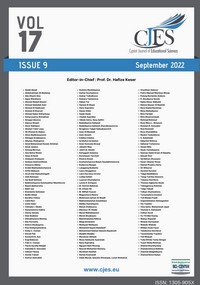The effects of E-learning based on a creatively cooperative method on student’s self-regulation ability in mathematics
The effects of E-learning based on a creatively cooperative method on student’s self-regulation ability in mathematics
Author(s): Flavia Aurelia HidajatSubject(s): School education, Educational Psychology, Cognitive Psychology, Psychology of Self, Distance learning / e-learning, Pedagogy
Published by: Birlesik Dunya Yenilik Arastirma ve Yayincilik Merkezi
Keywords: mathematics learning; self-regulation ability; creative cooperative; learning methods; students’ creativity;
Summary/Abstract: This study aims to determine the effect of the creatively cooperative learning method on students’ self-regulation abilities in mathematics. This study employed quantitative research with a One-Group Posttest-only design. The research participants were 93 students from the seventh grade at a secondary school. The data were collected using a mathematical problem-solving test and a self-regulated ability questionnaire. The data were analyzed using linear regression analysis. This study indicates that the implementation of the creatively cooperative learning method positively influences students’ self-regulated abilities in mathematics. This study informs educators about the importance of creatively cooperative learning methods to improve students’ self-regulation abilities in mathematics and achievement. Thus, educators can combine the creatively cooperative learning method to make effective and suitable teaching materials or learning plans.
Journal: Kıbrıslı Eğitim Bilimleri Dergisi
- Issue Year: 17/2022
- Issue No: 09
- Page Range: 3466-3477
- Page Count: 12
- Language: English

